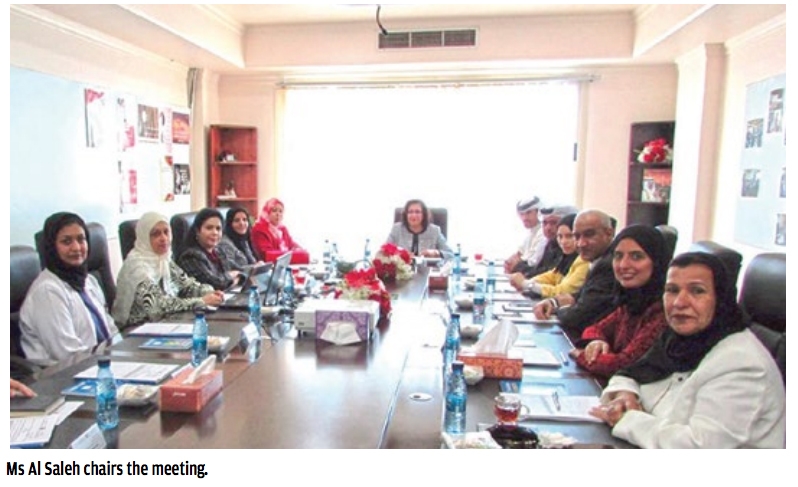National campaign on way to combat ‘rising diabetic cases’
The Kingdom’s Health Ministry is planning a national campaign to combat rising cases of diabetics. This came as Health Minister Faeqa Al Saleh chaired the work of the third meeting of the National Committee for the Control of Chronic Noncommunicable Diseases. The government has been implementing many programmes to tackle diabetes.
The private players in the health sector have also been carrying out many programmes and campaigns to address this menace. In their bid to ease the lives of diabetic patients and help them keep their blood sugar levels under control apart from managing meals and monitoring health statuses, two Bahraini University of Bahrain (UoB) students has launched an app that will help them maintain good health. The population of Bahrain suffers from one of the highest prevalence rates of diabetes in the world. Currently, around 15 per cent of the population suffer from diabetes, with the illness causing five percent of deaths in Bahrain. Diabetes is a metabolic disease which is caused by abnormal insulin secretion that regulates glucose use by the cell for energy.
The result is a high glucose in the blood leading to damage to the blood vessels supplying main organs and tissues like the kidney, eye, nerves and the heart. There are two major types of diabetes. In Type 1 (formerly called juvenile-onset or insulin-dependent) diabetes, the body completely stops producing any insulin. People with Type 1 diabetes must take daily insulin injections to survive. This form of diabetes usually develops in children or young adults, but can occur at any age and it is genetically predetermined. Type 2 (formerly called adult-onset or non insulin-dependent) diabetes results when the body doesn’t produce enough insulin and/or is unable to use insulin properly. This form of diabetes usually occurs in people who are older, overweight, and have a family history of diabetes, although today it is increasingly occurring in younger people, particularly adolescents. It is a disease of lifestyle associated with the obesity epidemic. According to the International Diabetes Federation, five countries among the six highest diabetes prevalence rates in the world are Gulf States countries, including Bahrain which is ranked the fifth.
The seriousness of the problem is that 50 per cent of cases are unaware that they have the disease but even those diagnosed with diabetes are identified after years of the disease with no symptoms. This is a silent disease and most patients have no symptoms and this underscores the need for early screening for those at risk of the disease, according to experts. It is estimated that diabetes prevalence will increase by more than two fold in Bahrain in the next two decades. The “icheck” app was created by Bahraini students Kawthar Ali and Muna Mohammed. It gives diabetic readings, clear diagrams and graphs so that it is easy for them to give their therapists reports on their health, as well as allowing the doctors to remotely follow the status of their patients at any time.
The students said the app has an insulin calculator through which the patient determines the type of dish that will be taken, where the app “icheck” allows the patient to determine the type of dish that will be consumed by choosing from the types of foods in the application such as local dishes, fast food and healthy foods. “icheck” would then calculate the number of grammes of carbohydrates in each meal, and notifies the patient of the amount of insulin doses that must be taken before taking the dish. Ms Ali and Ms Mohammed explained that the app works as an alternative for the insulin pump, which cost patients around BD3,000 to purchase, and around BD2,000 annually for maintenance. The pump gives patients the required dose of insulin, after entering the numbers of carbohydrates in each meal they consume.
They commented that “icheck” does the same task, but requires the patients to take the dose on their own and not automatically, which the pump does.
Related Posts

